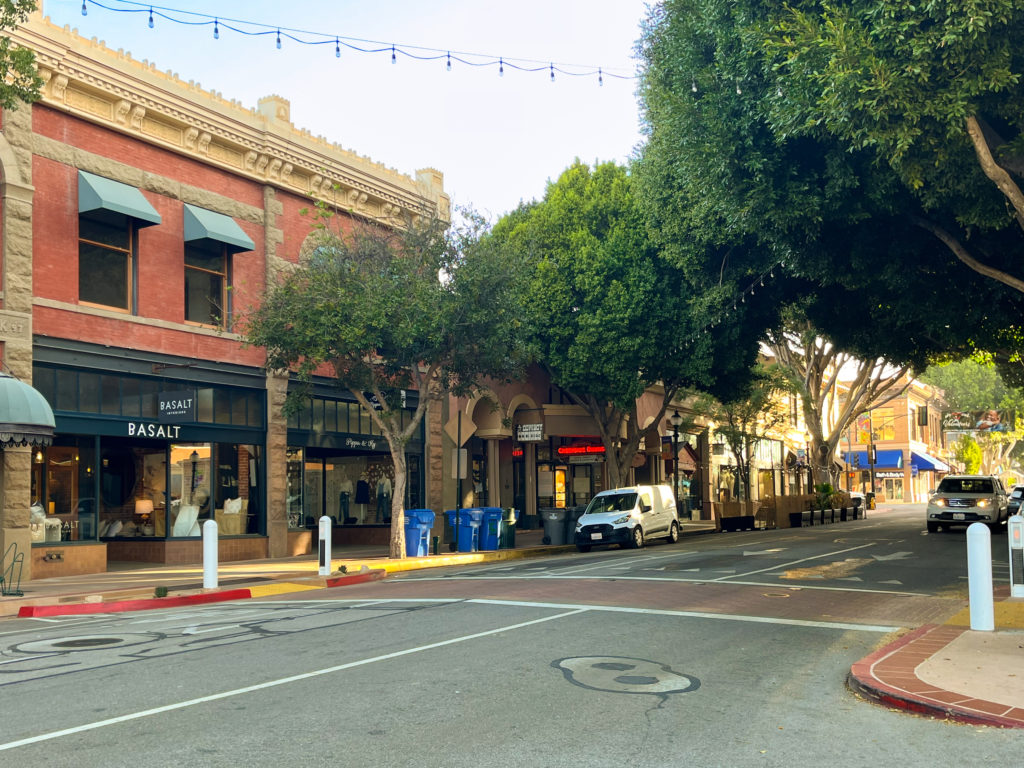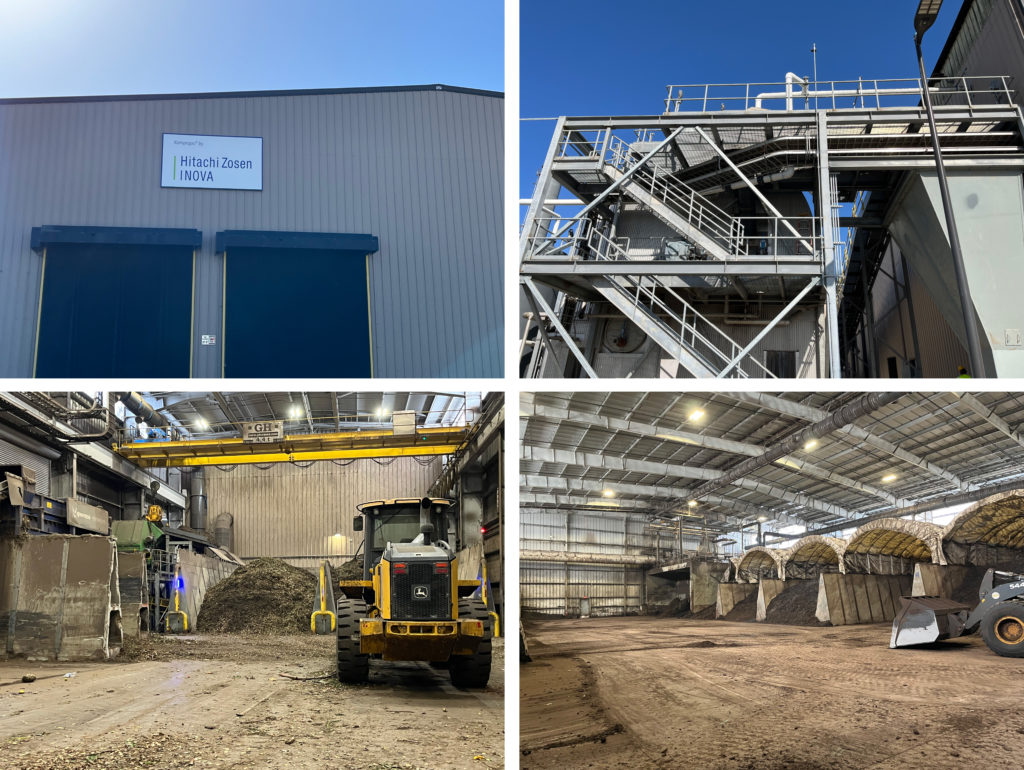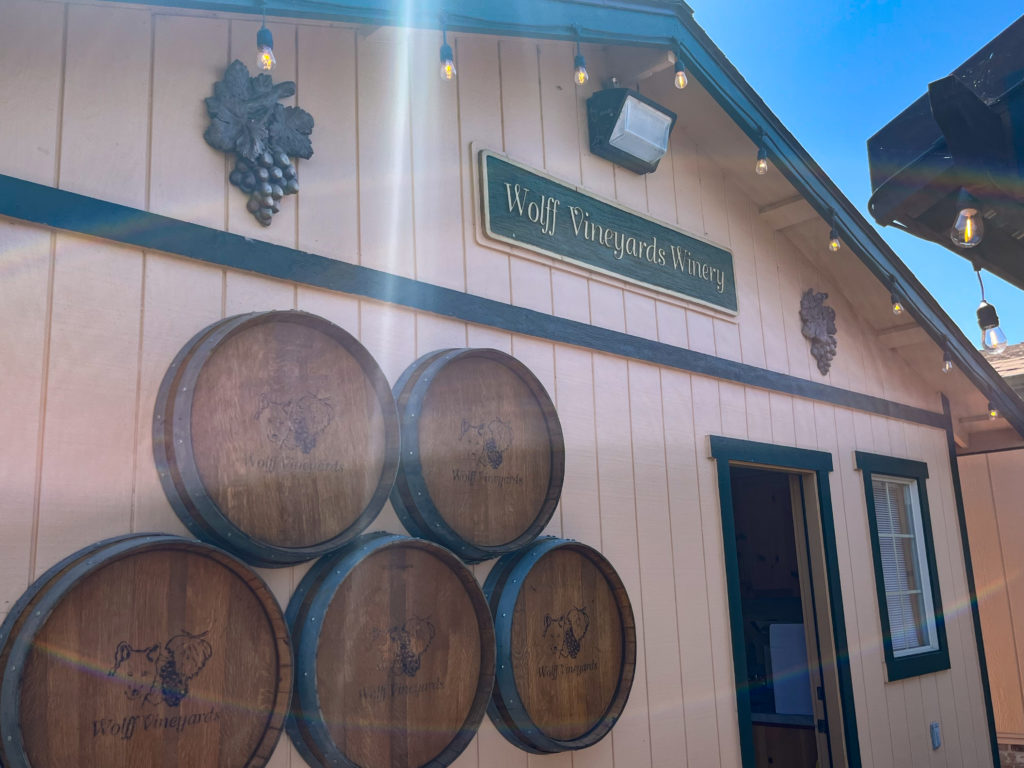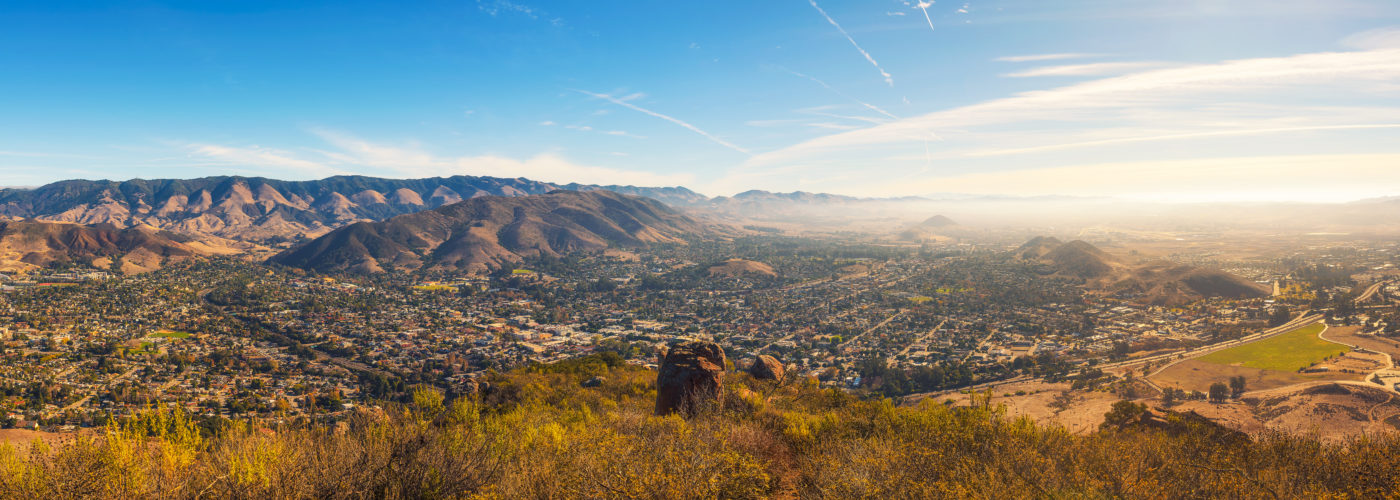If you’re an environmentally-conscious traveler dreaming of sunny days on the Central Coast, look no further than San Luis Obispo (SLO). This small city is making a big impact on eco-conscious tourism, ranking on the 2021 Carbon Disclosure Project’s A-List for transparency and climate action—one of only 95 cities in the world to make the cut. Here are three ways that SLO is changing the game for sustainable tourism—plus tips for how you can go a little greener no matter where your next trip takes you.
Editor’s Note: The author was hosted by Visit SLO.
Orchestrating a Citywide Effort

San Luis Obispo places environmentalism at the forefront of its public policy, committing to its rigorous Climate Action Plan with the goal of full carbon neutrality by 2035. The city’s work to transition to a low-carbon economy features several projects that benefit residents and tourists alike, including:
- Investment in award-winning public transportation, robust infrastructure for bicyclists, and ample electric vehicle charging stations
- A commitment to plant 10,000 trees by 2035, a goal supported by the Keys for Trees program in which every hotel stay within city limits helps sponsor the planting of new trees across the city
- Bans on plastic bags and limits on single use plastic
- Public conveniences such as bike racks at every trailhead and free green waste removal
- SLO offers roughly 3,500 acres of protected open space within city limits, providing scenic retreats for nature lovers, fostering environments for native animals and carbon sequestering plant-life, and preventing urban sprawl.
SLO hopes to lead by example when it comes to sustainability, emphasizing what a small, tightly coordinated local government can truly achieve.
Investing in Education and Innovation

Local enthusiasm for the city’s sustainability efforts is palpable. A visit to SLO reveals just how dedicated the city is to educating citizens and tourists alike on the importance of green innovation.
FarmsteadED
FarmsteadED is an agricultural program designed to foster a connection between people and their food.The program teaches participants about sustainable farming practices, the surrounding land, and what goes into creating those artisanal souvenirs we all love to stuff our suitcases with. FarmsteadED offers tours of multiple agricultural sites throughout the county, alongside demonstrations and interactive workshops.
Kompogas Anaerobic Digester: “Closing the Cycle” of Food Waste
The Kompogas anaerobic digester is the only machine of its kind in the United States. Created by Swiss-Japanese company Hitachi Zosen Inova, this massive machine is carbon negative and can process roughly 100 tons of green waste per day. The resulting nutrient rich compost can replace chemical heavy fertilizers and is available to local farms and vineyards for purchase, effectively closing the loop and starting the farm to table cycle all over again.
Creating Business Buy-In

From wellness centers to renowned wineries, dozens of businesses in SLO take advantage of the opportunities the city provides to go green.
Sloco Spa: A Certified B Corporation
One of the first and only certified B Corporations in its industry and a member of the SLO County Green Business Network, Sloco Spa goes above and beyond to focus their business operations on employee wellness, community, and environmentalism. Their physical location includes floors made from renewable cork, V.O.C. free paint, and Energy Star certified lighting fixtures. Customers can find environmentally-friendly products and products from BIPOC-owned businesses for sale in the mercantile at the front of the spa.
Big Sky Cafe: Going Green a the Local Level
Founded in 1994 and purchased by current owner Greg Holt in 2015, Big Sky Cafe was an early adopter of the city’s recycling and green waste pick up project. Today, the cafe tries to stay “hyper-local”, purchasing from local farms, bakeries, cheeseries, etc. wherever possible.
If asked, Holt can tell you where everything on your plate came from—eggs from Cal Poly, kale and lettuce from Santa Maria Valley—sometimes getting as specific as the first name of the farmer who sold him the produce. This granular level of local sourcing saves on transportation, supports local businesses, and creates a high level of traceability, so next time the nation is short on romaine lettuce, you’ll know exactly what you’re getting and from where.
Vineyards and Wineries: Sustainably Managed in the SLO AVA
Jean-Pierre Wolff is not only the proprietor of Wolff Vineyards, but also the Vice Chair of the Central Coast Regional Water Board and an active member of many other sustainably-focused initiatives. His passion for water management is reflected in Wolff Vineyards, from his innovative irrigation techniques to the grading of the land itself, designed to channel rain water into the fields.
Tolosa Winery truly embodies the “three Ps” of its SIP certification: people, planet, and prosperity. This vineyard uses sustainable drip irrigation, features an irrigation pond filled with recycled water, and 75% of their total energy comes from solar power, with the goal of becoming fossil fuel free within the next few years.
Wine tastings are available at both of these locations and several more across the SLO American Viticultural Area (AVA) on the Central Coast. Visit on your own or book an educational afternoon with Breakaway Tours and impress your friends back home with your newfound tasting expertise.
Tips to Make Your Travel More Sustainable
Not every dream destination can be as sustainably-focused as SLO, but that doesn’t mean you can’t make your trip a little greener! While it can be daunting to take environmental concerns into consideration on top of everything else that goes into planning a trip, incorporating a few of these tips from the outset can reduce your impact and your vacation planning stress.
Choose an Eco-Friendly Hotel
Many hotels have started gearing toward greener operations. Some properties make it a mainstay of their brand while others are just beginning the transition. Check your hotel’s website for any available information relating to sustainability efforts. Larger brands with several smaller properties under their umbrella, such as Hilton and Marriott, may post their overarching environmental policies on their main site.
Use Public Transportation When Possible
Skip the rental car and opt for public transit, walking, and biking when possible. Not only will this reduce your greenhouse gas emissions and help save you money on rising gas prices, but you may see things and places you’d miss while speeding through town. Factor this into the planning process and choose a highly walkable destination for your next trip.
Enjoy Open Space and Conservation Areas
You don’t have to be a hiker to enjoy the outdoors! Exploring the local natural scenery is a great way to get to know an area. Positive support for and interest in these open spaces reminds the people in charge just how important they are to a destination, so bust out those picnic baskets!
Take Advantage of Carbon Offsets
The transition away from fossil fuels is critical in creating more sustainable travel. Many flight booking sites now list which of their itineraries are carbon neutral. There are also several carbon offset companies that can work with you to offset the carbon from your particular trip.
Swap Your Packing Gear
Making a few small changes to your suitcase can make a big difference. Try these swaps next time you’re making your packing list:
- Zip lock bags for reusable plastic bags
- Toothpaste tubes for toothpaste bits in a glass jar
- Plastic toothbrushes for a compostable bamboo model
- Bottles of hair products for greener (and highly packable) shampoo and conditioner bars.
Many airports also have water stations where you can fill a reusable water bottle to bring on the plane with you (just make sure you fill it up after you head through security).
Frequently Asked Questions
Q: What is a B Corporation?
A: B Corporation is a designation a business can achieve by following a set of standards focused on environmental and social impact, transparency, and accountability. Businesses must recertify every three years to maintain their status.
You can search through a list of B Corporations here.
Q: What does SIP Certified mean?
A: SIP (Sustainability In Practice) Certification is a ranking specific to wineries and vineyards centered around preserving natural and human resources. To obtain SIP certification, vineyards and wineries must meet certain requirements and score a minimum point value in an assessment relating to the certification’s core values: social responsibility, water management, safe pest management, energy efficiency, habitat protection, ethical and community-oriented business practices, and willingness to evolve with new science and technology.
You can search an index of SIP-certified vineyards and wineries here.
Q: What is the difference between a vineyard and a winery?
A: While many operations house both a vineyard and a winery in the same location, the primary difference is that a vineyard is where the grapes are grown and a winery is where the wine is made.
Q: What certifications should I look for in a green business or hotel?
A: Third-party certifications can be a useful indicator of a reliable green business. A few major certifications are:
- LEED Certification: A four-level certification (certified, silver, gold, and platinum) for physical buildings aimed at decreasing carbon emissions and inefficiency and increasing health and safety standards for workers/inhabitants
- SIP Certification: Specific to vineyards and wineries; centered around preserving human and natural resources.
- B Corporation: Designation achieved by a business through following a set of standards focused on environmental and social impact, transparency, and accountability.
- Green Business Bureau Membership: A four level paid membership (member, aware, gold, and platinum) program in which levels are achieved by “completing green initiatives in the GBB EcoAssessment™ and EcoPlanner™”
- Green C Certification: A certification earned by small businesses for meeting standards of sustainability and Corporate Social Responsibility
- Energy Star (Certification for Buildings): A building certification earned by meeting standards set forward by the EPA.
Q: What is greenwashing?
A: Greenwashing refers to businesses that make false or misleading claims about the sustainability and environmental impact of their products and/or practices.
You Might Also Like:
• The 7 Best Travel Dresses for Europe• The 8 Best Ticket Websites for Booking Day Tours and Travel Activities
• Discover the Hidden History of Vikings in Sweden
• 10 Secret Alternatives to Crowded Summer Destinations
• What to Pack for Hiking: 38 Essentials
We hand-pick everything we recommend and select items through testing and reviews. Some products are sent to us free of charge with no incentive to offer a favorable review. We offer our unbiased opinions and do not accept compensation to review products. All items are in stock and prices are accurate at the time of publication. If you buy something through our links, we may earn a commission.
Related
Top Fares From
Today's Top Travel Deals
Brought to you by ShermansTravel
France: 8-Night Paris, Avignon & Nice...
Infinity Worldwide Vacations
 vacation
$2880+
vacation
$2880+
Poconos: 3 Nts in Garden of...
ResortsAndLodges.com
 hotel
$305+
hotel
$305+
7-Nt Canada & New England Cruise,...
Princess Cruises
 cruise
$839+
cruise
$839+




